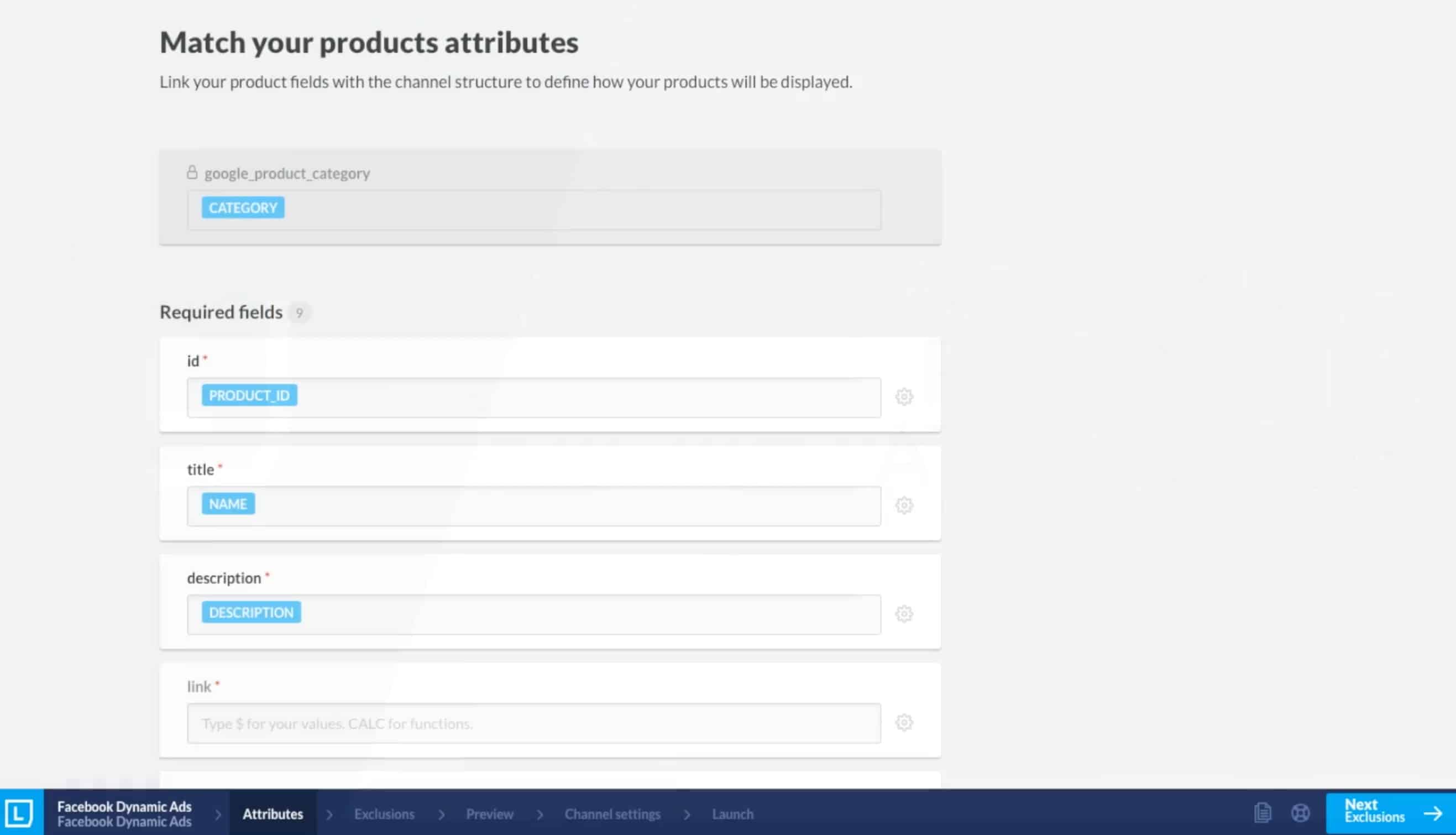How Important are Product Attributes in the Product Feed?
09/05/23
4'
In the world of e-commerce advertising, product feeds are the backbone of successful campaigns. A product feed is a file that contains all of the relevant information about a company’s products, such as product names, descriptions, prices, images, and more. One essential component of a product feed is the use of attributes. But what exactly is the purpose of product attributes in the product feed?
In this article, we’ll explore the importance of product attributes in the data feed and how they can impact the success of your e-commerce advertising campaigns.
What are Product Attributes?
Product attributes are a standardized set of data fields that provide specific information about a product. They describe a product’s features, specifications, and other relevant details. Attributes include product titles, descriptions, prices, availability, product category, brand, color, size, and many more.
The Role of Attributes in Product Data Feeds
In e-commerce advertising, attributes play a crucial role because they provide detailed information about a product that helps users find what they’re looking for on various advertising platforms such as Google Shopping, Amazon, Facebook, and more. For example, if a user is searching for a shirt, attributes such as “color” and “size” will help the user to identify and select the right product.
Attributes are also used by search engines and advertising platforms to match user queries with relevant products. The more detailed and accurate the attributes, the more likely the product is to appear in search results, which leads to increased visibility and sales.
But different online sales channels (marketplaces, social media, etc.) may have different requirements for these attributes. For instance, one channel may require a specific format for size, while another may not have that requirement. This variation in attribute requirements can be challenging for online retailers who want to sell their products on multiple channels. It can result in inconsistencies and errors that can hurt the accuracy and effectiveness of their product listings.
How to Get the Right Attributes for Each Channel
With a feed management tool such as Lengow, brands and retailers can match the attributes of their products between different sales channels. This means that the product attributes are adjusted to fit the requirements of each channel, ensuring that the listing is accurate and complete. By doing so, merchants can save time and reduce errors associated with manual data entry, ultimately leading to better accuracy in their listings.

Image credit: Lengow.
Here is how it works:
Lengow’s “Attributes Matching” feature allows you to match the fields in your product catalogue with those requested by a specific channel. If your catalogue doesn’t exactly match the channel’s requirements, you can use Lengow to find appropriate values for all products or refine values with “Rules” and/or “Functions.”
Attributes include mandatory (used to create and update your products), optional (filling these in can improve your product listings), and service fields (only applicable to specific channels). To make it easier to understand, mandatory and optional fields are grouped by topic. It’s essential to read the definitions of each attribute carefully to ensure you’re providing the correct information.
If a channel requires specific attributes, a banner will be visible on the left on the Lengow platform, allowing you to distinguish between “Common Fields” (attributes shared by all product categories) and “Attributes by Category” (attributes specific to each category).
Good to know: The matching is pre-filled from the “Lengow Matching” feature for each channel.
Conclusion: The Importance of Product Attributes
Attributes play a vital role in the success of e-commerce advertising campaigns. They provide essential information about a product that helps users find what they’re looking for and advertisers target their products to specific audiences. However, attributes vary from one channel to another and need to be matched correctly for each channel in order to improve the accuracy, relevance, and effectiveness of product feeds, resulting in increased visibility, clicks, and sales.
Your e-commerce library
Clarins x NetMonitor Success Story
Learn moreSuccess on Marketplaces
Learn moreCompetitive Intelligence
Learn moreSign up for our newsletter
By submitting this form you authorize Lengow to process your data for the purpose of sending you Lengow newsletters . You have the right to access, rectify and delete this data, to oppose its processing, to limit its use, to render it portable and to define the guidelines relating to its fate in the event of death. You can exercise these rights at any time by writing to dpo@lengow.com

Trending Posts
Marketplaces
The Top 10 Marketplaces in Europe (2026)
The e-commerce scene is a vibrant mix of marketplaces in Europe. These aren't just websites; they're bustling hubs where millions…
02/01/26
8'
Marketing channels
ChatGPT Ads and advertising on GenAI Search Engines: what you need to know
Advertising on generative AI-based search engines (GenAI) marks a new era in digital marketing. After two decades dominated by traditional…
18/01/26
8'
Marketplaces
The French Marketplace Landscape: What Brands Need to Know
France has quietly become Europe's marketplace laboratory. Lengow's exclusive ranking reveals why traditional retailers, not tech giants, dominate the game.…
08/01/26
6'
E-commerce Trends
Google’s Universal Commerce Protocol: The End of E-Commerce as We Know It?
On January 11, 2026, at the NRF Retail's Big Show in New York, Google unveiled the Universal Commerce Protocol (UCP),…
16/01/26
6'
Marketing channels
What the World Is Unboxing on TikTok and Instagram (Haul & Unboxing Index 2025)
Opening a package on camera has become much more than simple entertainment. In 2026, "haul" and "unboxing" videos serve as…
20/01/26
7'




